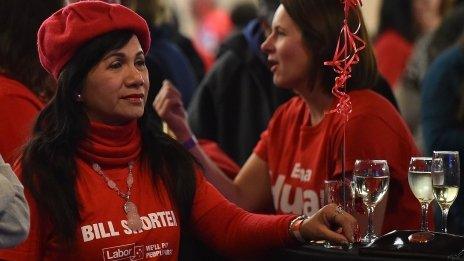Australia election: Tight vote could end in hung parliament
- Published
Tom Donkin explains why a result will not be declared for a number of days
Australia will not know the result of its federal election for days as counting in tight seats continues.
Twelve out of 150 lower house seats remain in doubt, with counting of pre-poll, postal and absentee votes to resume on Tuesday.
The official Australian Electoral Commission tally, external has Labor on 71 seats and the ruling Liberal-National coalition on 67 seats.
Independents and minor parties gained an unprecedented share of the vote.
Prime Minister Malcolm Turnbull said early on Sunday morning he expected to get the 76 seats he needs to form a new administration. Postal votes are expected to favour his candidates.
Analysts are still predicting that Mr Turnbull's coalition will come closest to forming a government, though a hung parliament, where neither party has an absolute majority, is likely.
In that case, both Mr Turnbull and Labor leader Bill Shorten will have the chance to form the cabinet by doing a deal with independents and minor parties.
Mr Shorten said in a speech that Mr Turnbull's coalition had lost its mandate to govern.
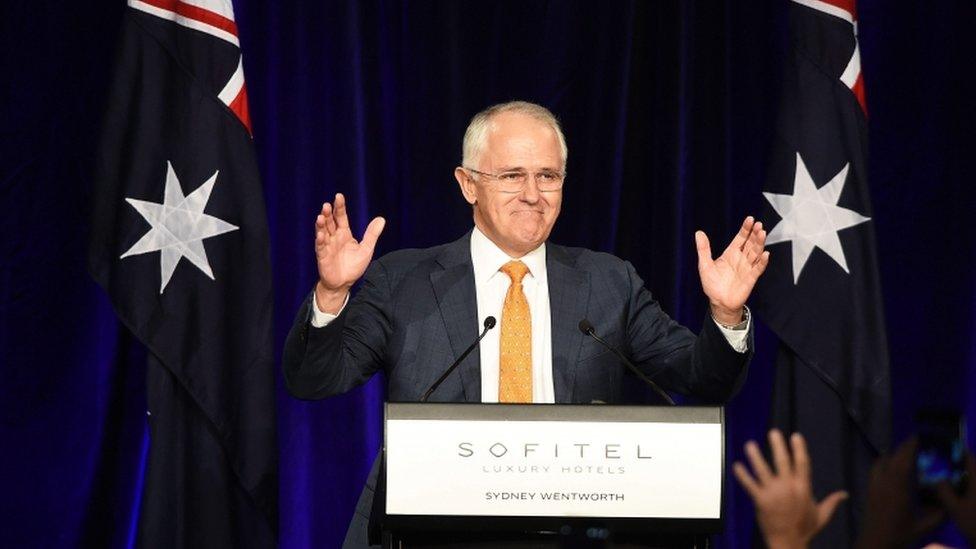
PM Malcolm Turnbull said he expects to get enough seats to form a government
Nearly a quarter of Australians voted, external for a lower house candidate from outside the major parties.
Voting is compulsory in Australia and uses the alternative vote system where voters rank candidates in order of preference.
All 150 seats in Australia's lower house, the House of Representatives, were being contested at this election, as were all 76 seats in the upper house, the Senate.
Results for the Senate vote are expected to take several weeks.
It is the first time in decades that all the seats in both houses have been contested in a single election.
The double-dissolution election, as it is known, was called by Mr Turnbull in an attempt to break a deadlock over industrial relations legislation.
Counting will not resume until Tuesday because postal votes, absentee votes and pre-poll votes need to be packaged up and returned to each electoral district to be processed.
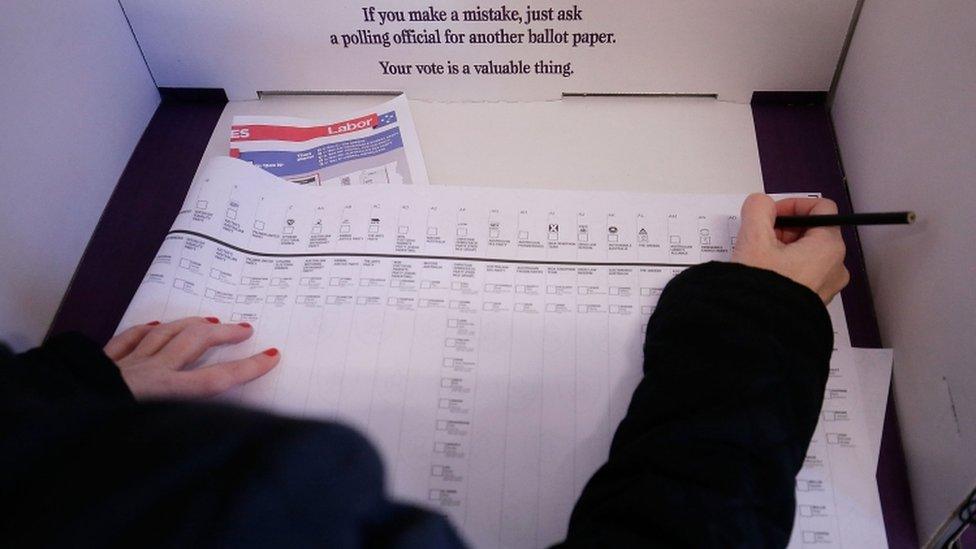
For the first time in decades, all lower and upper houses were being contested in a single election
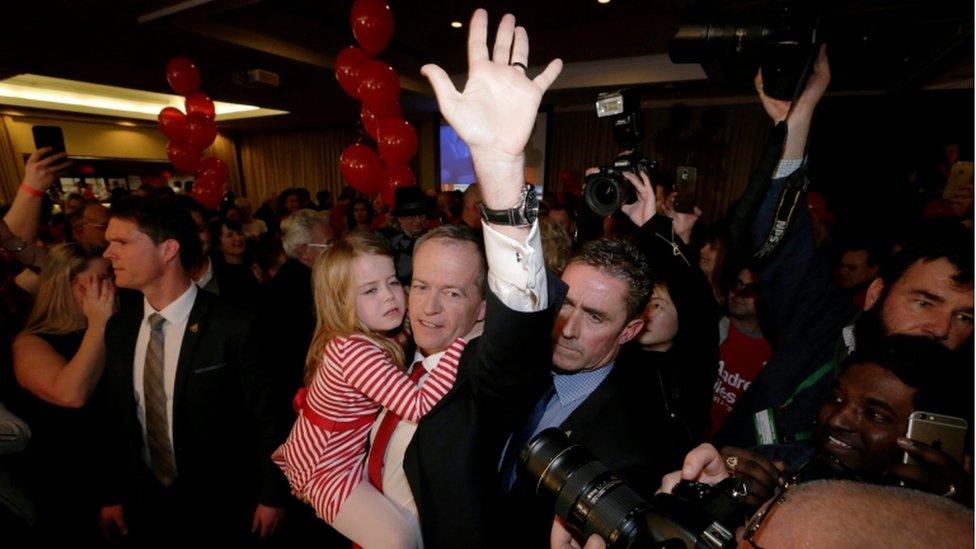
Labor leader Bill Shorten said his opponents had lost their mandate to govern
Analysis: Shaun Davies, Australia Editor, BBC News Online
Chaos is come again.
Unstable government has been the norm in Australia ever since Julia Gillard deposed her Labor colleague, Kevin Rudd, during his first term as prime minister in 2010.
Ms Gillard never managed to gain the electorate's trust and Labor switched back to Kevin Rudd, who was defeated in 2013 by conservative Liberal Tony Abbott. Abbott was in turn dispatched by current PM Turnbull in yet another internal party coup.
Mr Turnbull promised an end to instability but now, like Ms Gillard before him, he faces a term in minority government, where every mistake is magnified and every by-election fraught.
On top of this comes the minor party factor. As is the case elsewhere in the world, many Australians appear dissatisfied with mainstream politics.
Both Pauline Hanson's One Nation and the Nick Xenophon Team believe in economic protectionism. Ms Hanson's anti-immigration views are well known and 18 years in the political wilderness have not mellowed her.
Labor leader Bill Shorten says the close election vindicates his policies. But a more fundamental shift may be occurring in Australia's politics, echoing the rise of Donald Trump in the US and the UK's decision to leave the EU.
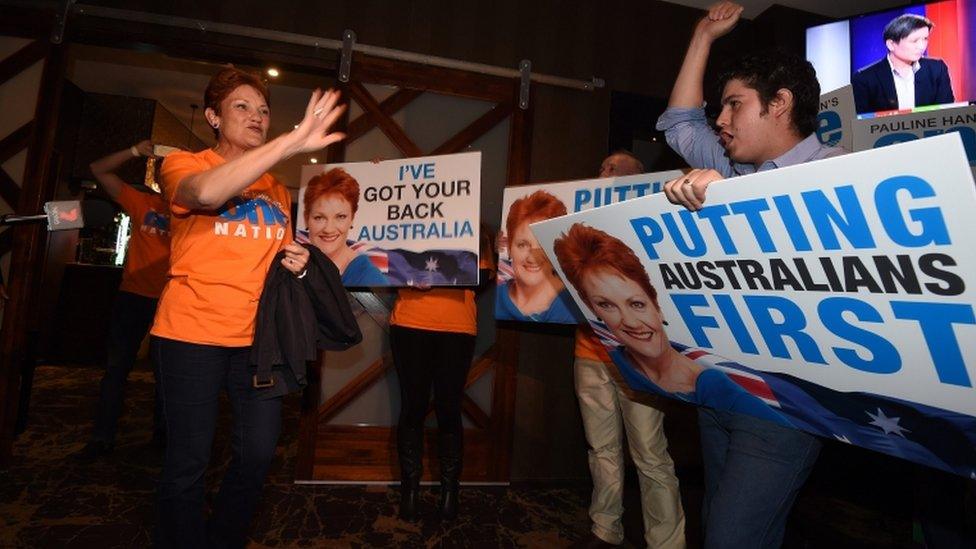
Pauline Hanson is making a political comeback at this election
Minor parties in driving seat
Senator Nick Xenophon's newly-formed party, the Nick Xenophon Team, took the lower house South Australian seat of Mayo, formerly a safe Liberal seat.
Mr Xenophon is expected to be returned to the Senate and his party appears certain to gain additional upper house seats.
Pauline Hanson's One Nation party has polled strongly in Queensland and although it has not won a lower house seat, its preferences have tended to flow to the opposition Labor Party.
Ms Hanson, who gained notoriety for her anti-immigration views in the 1990s, told the Nine Network that, based on early results, she was likely to secure two spots in the Senate.
Independents Bob Katter, Andrew Wilkie and Cathy McGowan were all returned to the lower house, as was Greens MP Adam Bandt.
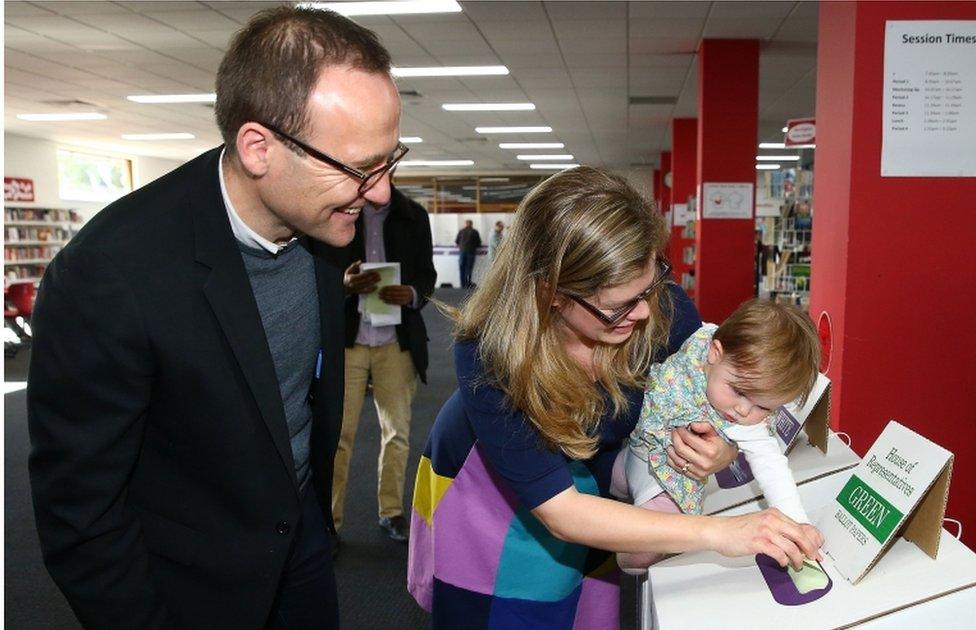
Greens MP Adam Bandt voted with his family in Melbourne
'Lost mandate'
Mr Turnbull and Mr Shorten traded barbs as the close result became apparent, with the prime minister accusing the opposition of a dishonest "scare campaign" over the country's public health system, Medicare.
He described the claims the government planned to privatise Medicare as "some of the most systematic, well-funded lies ever peddled in Australia" and said police would probably investigate claims of fraudulent distribution of text messages.
Mr Shorten, meanwhile, said Mr Turnbull would "never again be able to promise the stability which he has completely failed to deliver tonight".
The leadership of both is being openly called into question.
Mr Turnbull toppled the unpopular prime ministership of his conservative colleague Tony Abbott with a promise that he could deliver the votes needed to keep the coalition in power.
The prime minister was toppled once before by his party's right-wing and one conservative commentator has already called on Mr Turnbull to resign.
Despite his strong showing, reports this morning said some Labor figures were agitating against Mr Shorten in favour of popular left-winger Anthony Albanese.
- Published30 June 2016
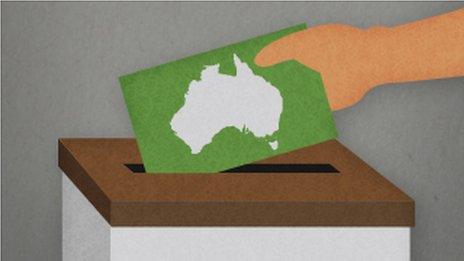
- Published28 June 2016
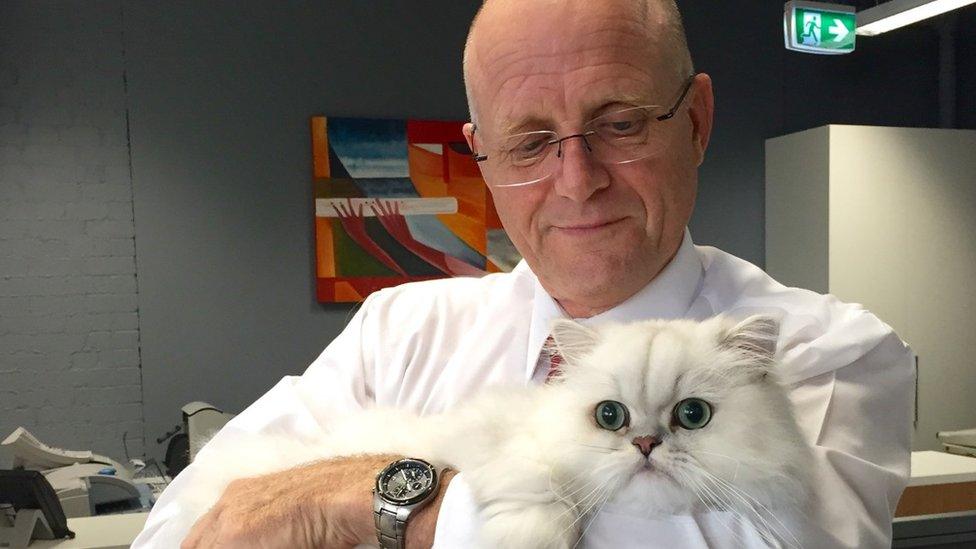
- Published2 July 2016
